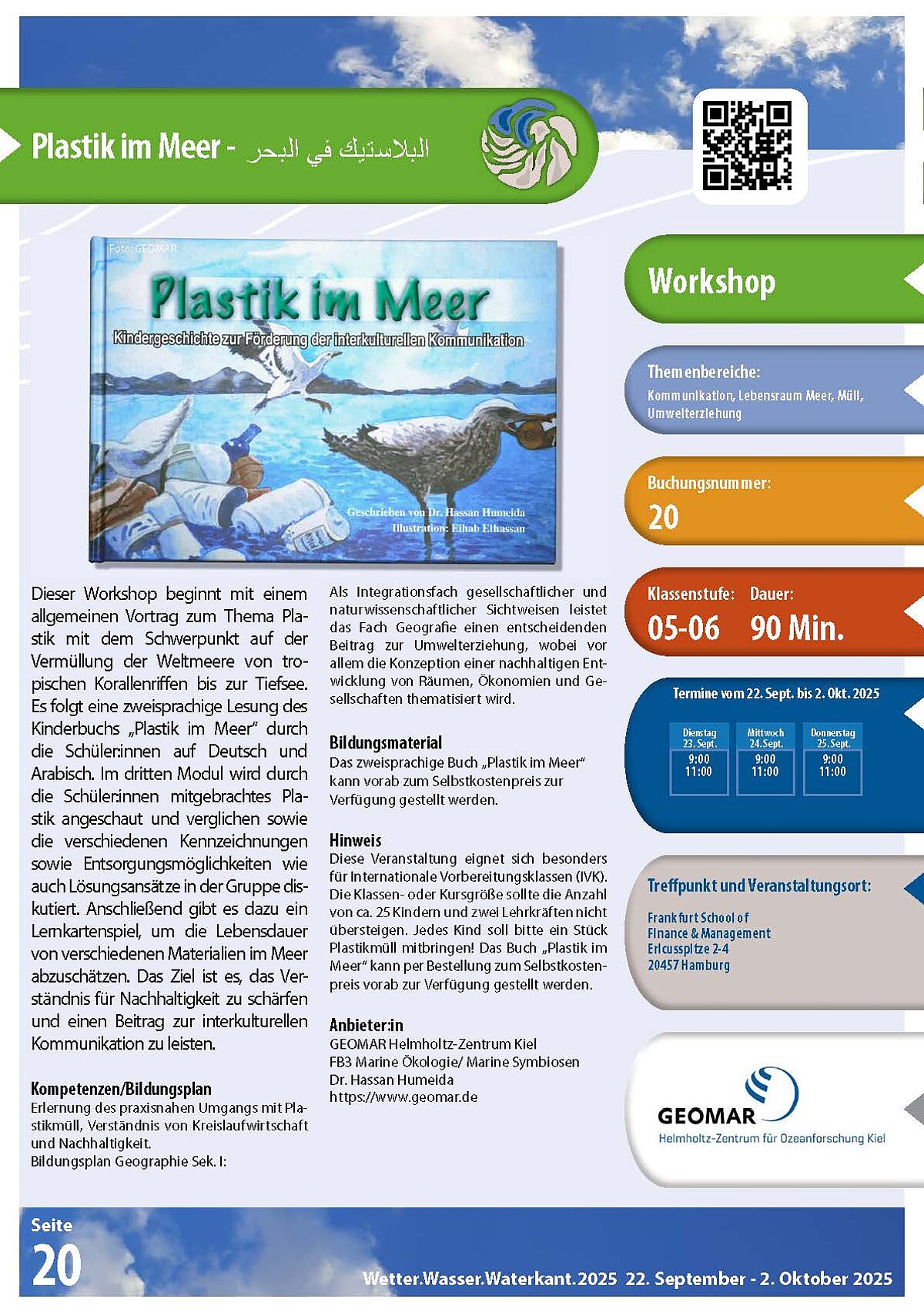As part of Wetter.Wasser.Waterkant.2025-Hamburg and in collaboration with GEOMAR - Helmholtz Centre for Ocean Research Kiel, three-day events on the topic of “Plastic in the Sea” took place. Six classes from six different schools in the Hanseatic city of Hamburg took part in our program. Around 128 pupils, accompanied by two to three teachers, came to us to learn more about plastic in the sea. Overall, all the activities went well, although the age of the children made it challenging for us to meet all the expectations and wishes of children of different levels.
Our program during this event was varied, rich in knowledge, and consisted of the following six modules:
- Introductory short lecture on the topic of “Plastic in the Sea”
- Viewing and evaluating plastic from the household
- Viewing microplastic particles under the light microscope
- Presentation of the “XTREAM” research project with doctoral student Ivan P. B. Tualla
- Playing the educational card game “Lifespan of Materials in the Sea” and discussion
- Bilingual reading from the children's book “Plastic in the Sea” and learning effects from the story
The learning objectives of this year's program were
- To raise awareness of sustainability among pupils
- To promote intercultural communication through diversity
Persons involved in the workshops:
Dr. Hassan Humeida – workshop leader
Doctoral student Ivan P. B. Tualla – workshop assistant
The whole program of the proven educational week Wetter.Wasser.Waterkant from 22.9. to 2.10.2025 can be found at https://www2025.de/programm/



![[Translate to English:] Science & Shopping](/fileadmin/_processed_/3/f/csm_Science_Shopping_2025_b0715de3ae.png)
